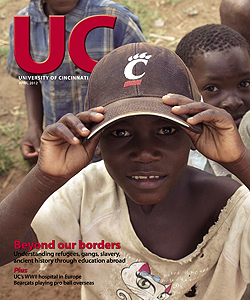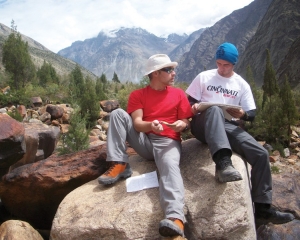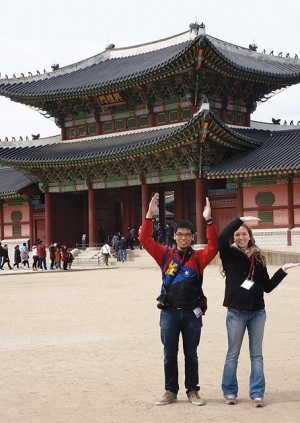International study, students and strategies part of University of Cincinnati's growing emphasis
by Deborah Rieselman
Tears streamed down the cheeks of a terrified Brittney Smith as she prepared to head to the Middle East for four months in 2006. The University of Cincinnati sophomore's fear of traveling alone was compounded by the fact that she had never been in an airport before, didn't know how to change planes and had no foreign currency to use once she landed. "Culture shock" was setting in before she left the ground.
No one was forcing her to study abroad, of course. In fact, her parents had tried to dissuade her during the six months she spent deciding whether or not to fill out an application for the American University in Dubai. "But something inside of me needed to see more than the 10-block area I grew up in," she states matter-of-factly.
By the time she reached the airport, however, her fervor had faded. The only thing that kept her from throwing in a tear-drenched towel was the fact that she had paid $1,800 for a plane ticket. "I couldn't turn back," she says. "I was too proud."

 Past Issues
Past Issues


